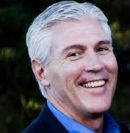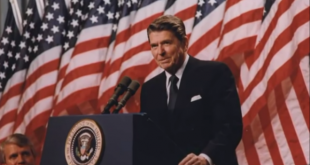 I have been asked in recent days by many within the church how Christians should respond to the cultural shifts sweeping our land. Several have asked me if John Wesley’s call to “perfect love” requires believers to be less “exclusive” in our community engagement.
I have been asked in recent days by many within the church how Christians should respond to the cultural shifts sweeping our land. Several have asked me if John Wesley’s call to “perfect love” requires believers to be less “exclusive” in our community engagement.
More directly, many have suggested that Wesleyan charity implies political accommodation rather than confrontation and an openness to a “middle way;” one of tolerance and inclusion, if you will. As the leader of one of our nation’s few remaining Wesleyan universities here’s my brief response to the church and to all others who care to listen in.
First, it is true that Wesley elevated love as evidence of God’s grace in our lives. Loving God and loving our neighbor, however, demands that we hate sin for sin always compromises our neighbor and sin always defies our God. John Wesley taught over and over again that the obedient “methodical” path of Christianity is one that eschews disobedience at every turn. There is no place in Wesley’s teaching to have a “conversation” about sin: Christian love demands that we lead people to confess sin, not sit around and discuss it.
Second, Wesley was very clear about what he called “singularity,” i.e. the exclusive non-negotiable claims of Christ and the Church. In fact, he made it so clear that he said “singularity” was the difference between heaven and hell: “You must be singular or be damned. The way to hell has nothing singular in it. The way to heaven has singularity written all over it. You must be singular or be damned.”
Third, indeed, Wesley did say, “In the essentials unity… in all else charity…” but in doing so he clearly made Biblical “essentials” the top priority. In calling for “charity” he never intended to diminish the First Things. In fact, Wesley repeatedly preached that anyone who denied “the essentials” was guilty of being “almost Christian.”
Fourth, Wesley’s message elevated the dignity of what it meant to be human. If he were with us today, he would be the first to say that our inclinations do not and must not define us. He would condemn the dumbing down of a man and a woman to nothing but the sum total of what they are inclined to do. He would shout that our identity is found in Christ, not in our proclivities and passions. Wesleyan/Methodist holiness, by definition, means that we rise above our appetites rather than capitulate to our every desire and instinct. John Wesley would cry out from today’s pulpit, as he did from his own: “You are the imago dei, my land, not the imago dog! Now, by God’s grace, act like it!”
John Wesley ran into the storm and not away from it. He did so with the confidence that if he won — great that was God’s grace — but if he lost, it didn’t matter because the battle was the Lord’s and he was willing to go down fighting. He preached that compromise would the Church’s demise and that if our salt “loses its savor” we will inevitably be “thrown out and trampled under foot” by a culture that laughs at our irrelevancy. Bottom line: Wesley boldly confronted the leaders of his church and the leaders of his country and demanded that they preserve culture, not take part in its rot.
If there is any message that Wesley would have for us today it would be this: “May God help us if we have really come to the point where we believe that our salvation comes from negotiating a compromise with a world that hates our Lord and His Gospel.” He would stand in the contemporary town square, as he did in his own, and shout: “There is no ‘middle way’ with Christ. He is the only way!”
 Dr. Everett Piper is president of Oklahoma Wesleyan University in Bartlesville, Oklahoma.
Dr. Everett Piper is president of Oklahoma Wesleyan University in Bartlesville, Oklahoma.
The views expressed in opinion articles are solely those of the author and are not necessarily either shared or endorsed by Black Community News.
 Black Community News News and Commentary for Christians
Black Community News News and Commentary for Christians



